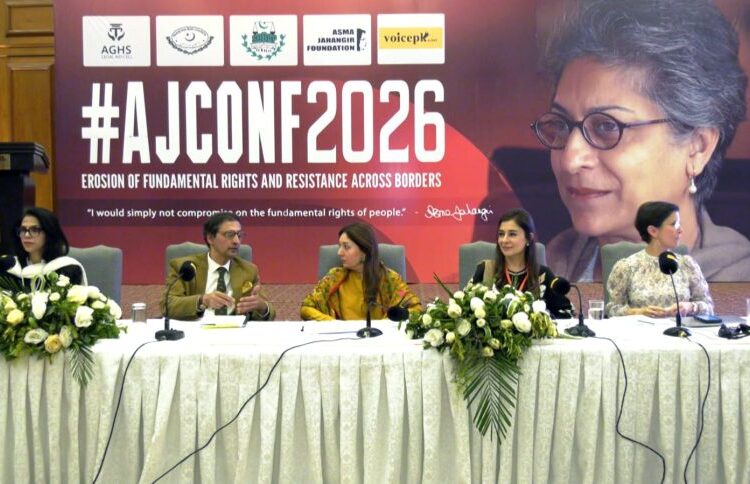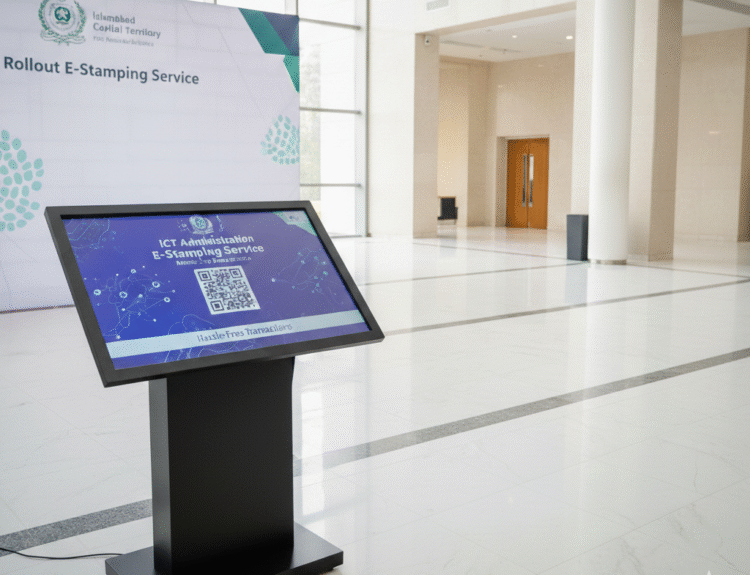In the heart of Lahore’s buzzing commercial district, where the scent of ink still lingers in the air and printing presses hum with quiet urgency, a new kind of publishing story is being written—one not about nostalgia, but reinvention. At the center of it is Syed Hammad, a man whose journey from software engineering to the helm of one of Pakistan’s most innovative publishing houses mirrors the very transformation he hopes to bring to the industry.
As a child, Hammad watched his father run a bookstore with care and precision, treating books not just as commodities but as vessels of knowledge and culture. He would spend hours there, not just reading but absorbing the rhythms of the trade—paper orders, customer conversations, the reverence for a well-bound spine. These early memories formed a quiet blueprint that would later become a life mission.
Today, Hammad is the CEO of Papercraft Publishers Pvt Ltd, Pakistan’s fastest-growing publishing house. The company has become a major player in both academic and commercial publishing—and increasingly, a bridge between Pakistan and the global literary market.
Before founding Papercraft, Hammad worked in the tech industry, but the digital world never quite filled the intellectual and emotional space books occupied for him. What started as a side project to modernize his father’s business soon evolved into a full-fledged venture. Armed with a dual sense of purpose—reviving a family legacy and pushing the boundaries of what publishing could become—he took a leap that many would have considered risky.
A Shifting Landscape
Pakistan’s publishing industry, like its global counterparts, is grappling with rapid changes in how people consume written content. The tactile pleasure of printed books now competes with the convenience and speed of digital consumption. At Papercraft, the response to this shift has been pragmatic rather than nostalgic. The company operates on the premise that people haven’t stopped reading—they’ve simply changed how they read. Meeting readers where they are has become central to its ethos.
This dual commitment to tradition and innovation is evident in both its catalog and operations. Papercraft publishes in English and Urdu, covering an expansive range of genres—from scientific research and religious scholarship to poetry and children’s literature. But it is the company’s infrastructure that distinguishes it most.
With services encompassing book design, editorial support, and global distribution through platforms like Amazon KDP and IngramSpark, the company offers a full-stack publishing solution. Authors are given flexibility in scale—printing anywhere from 50 to 50,000 copies—and benefit from eco-friendly inks, premium stock, and an online dashboard that provides end-to-end visibility into the publishing process.

Hammad’s background in engineering has shaped many of these innovations, from AI-assisted editing tools and secure cloud storage for manuscripts to real-time project tracking. The company’s approach minimizes friction for writers, allowing them to focus on storytelling while the backend operations run with precision.
Going Global, Staying Grounded
Papercraft’s vision is not confined to Pakistan. The company has expanded internationally with offices in Ohio and London, enabling smoother operations for clients in North America and Europe. This global presence has facilitated cross-border invoicing, tax handling, and faster distribution—especially critical for academic clients and international authors.
These expansions have borne fruit. The company has helped launch titles like Too Late to Say Sorry by Amna Bilal, which achieved bestseller status on Amazon, and Whispers Through the Nile, authored by 11-year-old Ajwa Hareem Salman Hijazi. Increasingly, Papercraft’s clientele includes authors from the Middle East, Canada, and the UK, as well as institutions seeking scalable, high-quality publishing services.
Domestically, its reputation continues to grow. Papercraft has established partnerships with top-tier universities such as LUMS, NUST, PIEAS, and Aga Khan University. At a time when self-publishing is often synonymous with diminished quality control, these collaborations serve as a testament to the value of professional standards in academic publishing.
Beyond Books
Papercraft’s ambitions go beyond commercial publishing. The company is investing in cultural development through book donations to underserved schools, literary workshops, and upcoming educational initiatives. One such effort is the planned Author Academy—an online platform aimed at training aspiring writers through courses and certifications.
There are also plans to launch a free digital library offering academic and Islamic resources, and to expand into underserved genres such as children’s literature and graphic novels. The company views these areas as ripe with creative and commercial potential, particularly in Pakistan’s evolving literary landscape.
Innovation remains a cornerstone of this growth. New tools powered by artificial intelligence are being developed to provide translation and transcription services for regional languages—an effort to amplify stories that often remain untold due to linguistic barriers.
For Hammad, this is personal. He speaks of authors who remind him of his younger self—people full of ideas but unsure where to begin. “I want to make it easier for them,” he once said in a personal blog, “to not give up before they even start.” That sentiment has driven many of Papercraft’s accessibility-focused initiatives.
The Fine Print of the Future
Papercraft’s trajectory is ambitious but grounded in a deep sense of responsibility—both to the family legacy it inherits and to the industry it seeks to transform. The company views disruption not as a threat to be feared but as an opportunity for renewal. As global attention increasingly shifts to digital spaces, Papercraft aims to ensure that the art of publishing continues to matter—perhaps now more than ever.

Behind it all is Hammad’s belief that books still carry the power to shape nations. In a country where reading culture often struggles for survival, he sees every printed page as a quiet act of resistance—and renewal.
With freshly printed books lined up for dispatch and more projects in the pipeline, the company is not just navigating the future—it’s helping to write it. From Lahore to London, Papercraft Publishers stands as a testament to what’s possible when tradition meets technology with purpose.
For more information, visit www.papercraftpublishers.com or contact info@papercraftpublishers.com.






